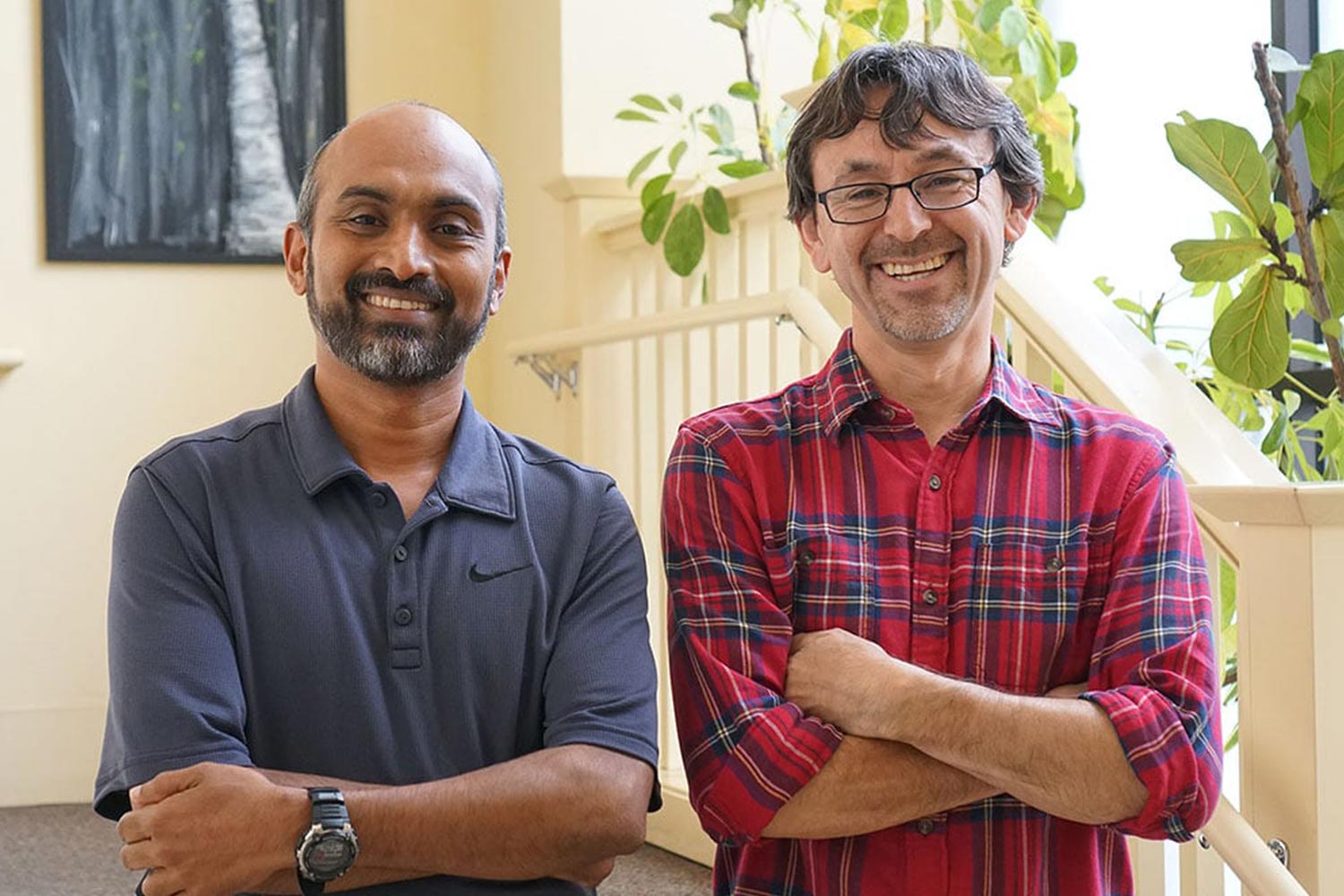It’s not often that information technology is featured in a story about a nonprofit insurance cooperative. But tech — how it works and what it can achieve — enhances accessibility, an asset for any nonprofit.
In this interview, Fred Rodriguez and Abraham Panicker, who have worked with NIA for 19 years, discuss how the Information Technology department at Nonprofits Insurance Alliance (NIA) provides the backbone to NIA’s operations, enabling our nonprofit to respond quickly and efficiently to yours.
How does your work in IT support NIA’s mission?
Fred: The people who usually come onboard on IT stay for quite a while. I think that speaks for itself in terms of how great NIA is as a place to work. I stay because I love supporting my coworkers, believe in NIA’s mission, and love helping nonprofits. One of the things I’ve appreciated over the years is that we have personal goals, and my goals have always entailed volunteering 20-30 hours at a nonprofit. The impact you’re making really hits you when you volunteer.
I’ve always had a good rapport with Big Brothers Big Sisters. Their office network needed attention, so I would stop by after work and do some projects for them. And I just appreciate doing that for them, because their systems were so old and worn down, and they didn’t have the funds to improve their networking, their computers, or to get their printer up and running — you know, just fundamentals that most office workers would probably take for granted.
I loved helping them get up-to-date, so that they could efficiently run their nonprofit.
Abraham: For an IT professional, it’s not that hard to get a decent job in Silicon Valley, but for all of us here, it’s not about that. It’s about serving the nonprofit world through NIA.
That’s why you can see that most of the people in IT stay here for years. We also get many opportunities to help nonprofits directly. Personally, I have been volunteering Santa Cruz Family Shelter for a long time.
The reason NIA was founded was to solve a problem—to address an insurance availability crisis so that nonprofits could find coverages and continue to operate. Do you ever find that you, likewise, have to dedicate yourself to confronting obstacles in an ingenious way in NIA’s IT department?
Fred: In IT, we’re always troubleshooting, so we always have to invent ways to solve problems. Nineteen years ago, when I first started, the server died on us within a few months. We basically had no email. And back then, our backups were all on an old-school tape.
I remember having to restore the server. I worked all night — I spent the night on the floor here in this office waiting for the backup because I knew how important email was. Our members would not be able to reach us without it.
And finally, the backup finished at like 7:00 a.m. just in time for when our 40-50 employees started to roll in. My boss walked in and she said, “What are you doing here?” I said, “I’m rebuilding the server!” We were fortunate enough that in the time it was down no one filed claims.
These days, everything is cloud-based of course. Virtualization has been the biggest technological change, so if I had to rebuild the server it would only take an hour, instead of all night. But we still have filters in place to make sure that if anything like that happens, we don’t miss a claim from our members in that time.
Abraham: When you write software, you always come across situations where you don’t have a way to reach the destination. That’s normal. But you have to find a way without sacrificing performance, integrity, and standards.
I have seen many situations where a program works perfectly on one set of environments, but behaves differently on a different set of parameters.
Sometimes it takes a little bit of extra time to find the optimum solution, but from my experience, we will continue to achieve our objectives without sacrificing quality.
Each department at NIA embodies the cooperative’s mission not only in the results the department produces, but in the approach to the work itself. Do you have a methodology for creating solutions?
Fred: When it comes to helping out staff, I always try to put myself in their in their shoes, just like we do with our members. I can’t always presume that a person knows certain technical things that I’m trying to communicate.
The common mistake I see in other companies is that a computer technician will start talking in technical terms, and sometimes it all goes over the head of a coworker. I just always try to consider the experiences of my coworkers.
Maybe their computer is down, so I understand why they’re upset. I do everything I can to mitigate that and just try to be as courteous as possible and as friendly as possible when it comes to helping people.
You don’t want to make people feel bad. You want to take into consideration the relationship that you’re going to have with them. That’s how I approach staff, and that’s how NIA approaches members.
Abraham: Creating or fixing an application poses a lot of challenges. Sometimes it can even be a seemingly simple task for which we have to find a solution. Every problem is different. But finding the actual root cause instead of just finding a work-around is key.
I want to find the real cause and fix that specific issue directly so that I can save resources, instead of applying an artificial fix to the issue that doesn’t address the real underlying problem.
That philosophy is applicable to everything, including this company itself.
Fred Rodriguez has over 20 years of experience working in the IT field and in helping out nonprofits. In his spare time, Fred enjoys playing music with various bands in Santa Cruz & Santa Clara counties.
Abraham Panicker was born in India and completed his bachelor’s in engineering (electronics and communication) in 1993. He started his career in electronic manufacturing, then switched to software after completing a diploma in computer programming.
He worked in different countries prior to moving to the United States in 1999. Santa Cruz is his third city in the U.S. In his spare time, he enjoys beekeeping and helps at the Santa Cruz Family Shelter (one of NIA’s members) on a weekly basis.





